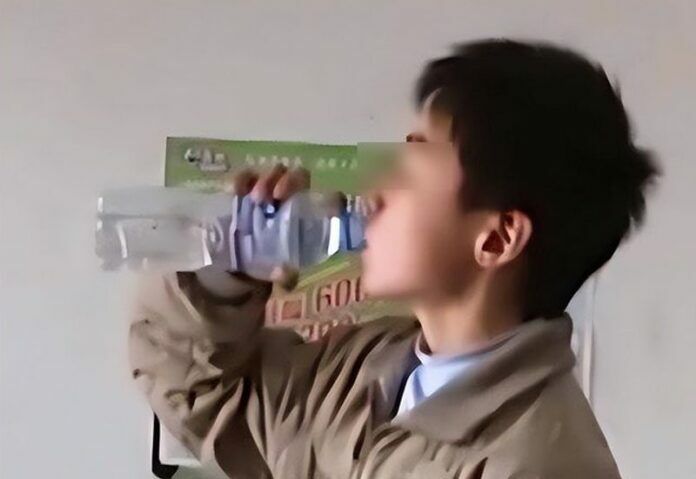Chinese boy’s peculiar thirst diagnosed as diabetes insipidus after years of baffling doctors

In a strange twist of health phenomena, a 14 year old boy from Jiangxi province, China, developed a staggering water-drinking habit. Consuming up to 30 litres of water per day, the boy becomes agitated without his abundant intake. Medical professionals finally diagnosed this unusual condition as diabetes insipidus, a rare disease causing extreme thirst.
When he was just a small child in 2004, the boy’s strange fixation with water started one night when he cried out for a drink before bed. Assuming their son was merely thirsty, his parents quenched his thirst. The boy, robust and healthy, continued to drink excessive water, appearing to lead an otherwise normal life. His mother dismissed his peculiar behaviour as a consequence of the hot weather, excusing his thirst as a result of children playing energetically.
Nevertheless, his unusual ability to guzzle vast quantities of water became a point of intrigue for everyone surrounding him but was dismissed by local medical professionals as normal.
At six years old, he began carrying two 1.5-litre bottles to school, which shocked his school teachers. Despite his unique condition, local doctors continued to rule him healthy. Eventually, the mother turned to village doctors in desperation, fearing foul spirits were at play. However, no improvement was noted after paying for these local treatments, reported Sanook.
As the boy entered high school in 2016, his consumption incrementally peaked at a concerning 30 litres per day, often spending his entire day drinking water. Continuous check-ups in larger city hospitals resulted in no clear diagnosis until doctors eventually flagged his condition as ‘diabetes insipidus’ during an intensive two-day observation period.
Diabetes insipidus is typically identified in patients who have undergone brain surgery. It is indeed a challenging diagnosis for healthy individuals unless it is genetically present. Although not a complex disease to treat, doctors claim that the late diagnosis could potentially warrant a lengthier treatment period for the young boy.
Latest Thailand News
Follow The Thaiger on Google News:


























